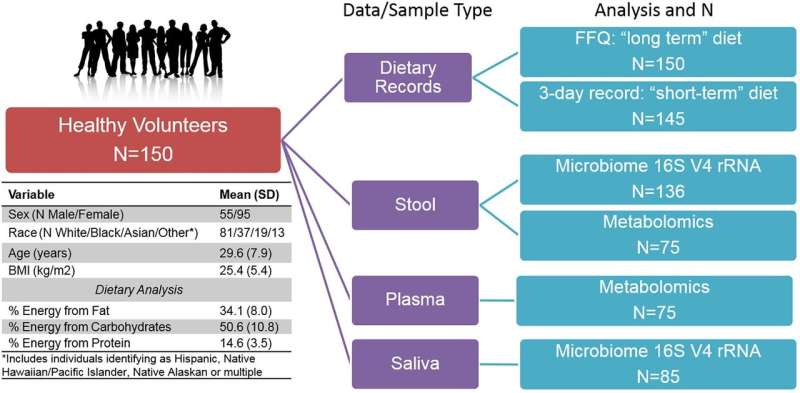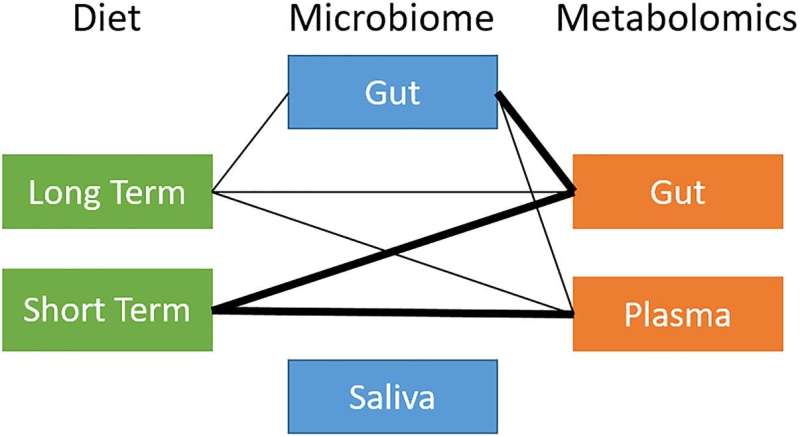Overview of Study design, subject characteristics, and multi-omic sample availability.
The composition of the human microbiome, a complex ecosystem of microorganisms, plays a crucial role in lifelong health. Little is known, however, about the detailed molecular mechanisms linking health status to the microbiome of the gut, for example.
To investigate the interaction between diet, the microbiome, and the set of small-molecule chemicals ("metabolome") produced by these organisms, Jane Ferguson, Ph.D., and colleagues analyzed the diet, and profiled the microbiome and metabolome of 136 healthy subjects.
Their data suggests that gut microbiome composition influences how diet is metabolized, potentially impacting host health by modulating specific metabolites and their downstream signaling pathways. For example, intake of plant-derived nutrients and artificial sweeteners was associated with differences in circulating metabolites, particularly bile acids, depending on the microbiome composition.
The group's findings, published in the journal Frontiers in Genetics, suggest that gut microbiome composition modulates how dietary nutrients are metabolized, with potential downstream consequences on metabolic health.
Overview of global relationships between microbiota, diet, and metabolites. Thick line: distance correlation t-test p-value < 10−5; thin line: distance correlation t-test 10−5 < p-value < 10−1.
More information: Zheng-Zheng Tang et al. Multi-Omic Analysis of the Microbiome and Metabolome in Healthy Subjects Reveals Microbiome-Dependent Relationships Between Diet and Metabolites, Frontiers in Genetics (2019). DOI: 10.3389/fgene.2019.00454
Provided by Vanderbilt University

























